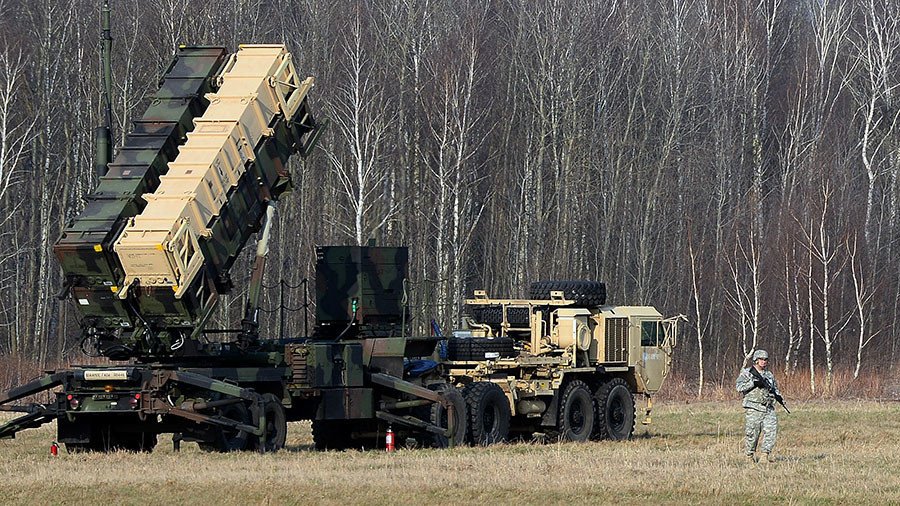State Dept authorizes sale of $10.5bn missile defense system to Poland

Poland is poised to buy four Patriot air and missile defense systems from the US, worth an estimated $10.5 billion. The NATO ally’s defense minister says the country has been expanding their military to defend against Russia.
The Defense Security Cooperation Agency, the arm of the Pentagon that implements foreign arms sales, announced Friday that the State Department has approved a proposed deal between Poland and the US.
If the sale is finalized, Poland will join five other NATO members operating the Patriot system, including the United States, the Netherlands, Germany, Spain and Greece. Raytheon, the prime contractor in the deal, says the Patriot systems they have built for 13 countries can be operated together in combat.
The Defense Security Cooperation Agency said the sale would provide allies with “modern systems that will enhance interoperability with US forces and increase security.”
“This proposed sale will support the foreign policy and national security objectives of the United States by helping to improve the security of a NATO ally which has been, and continues to be an important force for political stability and economic progress in Europe,” the agency said in the announcement.
Russia has repeatedly criticized NATO’s military buildup along its borders as a threat to national security. Moscow has condemned the new US ground-based missile defense system in Eastern Europe and increased presence of NATO vessels in the Black Sea.
Russian Defense Ministry spokesman Colonel Aleksandr Emelyanov said that the US-made missile defense systems around the world are “provoking a new arms race” that poses a “threat to humanity.”
Emelyanov claims that the missile defense systems are a part of Washington’s planned “prompt global strike” contingency to launch a “disarming strike” against Russian or Chinese strategic forces and then use the missile defense system to protect the US from retaliation strikes.
“It is Washington that will decide, whom these systems will protect,” Emelyanov said.
However, Polish Defense Minister Antoni Macierewicz said that Russia is “ready for war” and “NATO needs to be ready too."
“Now Poland will have a military that can truly defend our country against any aggression,” Macierewicz said in an interview with the New York Observer on Tuesday. “We are committed to spend 2.5 percent of our GDP and double the size of our military up to 200,000 soldiers. Only then we will be able to defend ourselves and effectively help our allies.”
In March, Macierewicz said he hoped to sign a contract to buy eight Patriot missile defense systems “by more or less the end of the year.”
US Congress to spend $4.6 bn for ‘reassuring NATO allies’ as anti-Russia hysteria mounts https://t.co/8sEWUQGcBR
— RT America (@RT_America) November 9, 2017
The Patriot system is a long-range missile defense system designed to protect against aircraft, drones and ballistic or cruise missiles. The long-range, high-altitude, all-weather solution has been tested more than 3,000 times, according to Raytheon.
Poland has requested to buy four AN/MPQ-65 radar sets, which can track and engage more than 100 potential targets at a range of over 100 kilometers. The sale would also include four engagement control stations, mobile units that control the entire Patriot system.
The country also requested 16 M903 launching stations that can transport, aim and launch the missiles, as well as two hundred and eight Patriot Advanced Capability-3 (PAC-3) Missile Segment Enhancement missiles.
The sale would also require around 42 representatives from the US government and 55 contractors to travel to Poland “an extended period” for testing, training, and technical support.
The sale would be the first phase of a two-phase process for Poland to buy an Integrated Air and Missile Defense (IAMD) Battle Command System (IBCS), which will serve as the foundation for all of the country’s Patriot batteries.
The Defense Security Cooperation Agency notified Congress of the possible sale on November 14. Congress still has to approve the contract because it involves advanced military technology. Lawmakers could also block the sale within 30 days.













